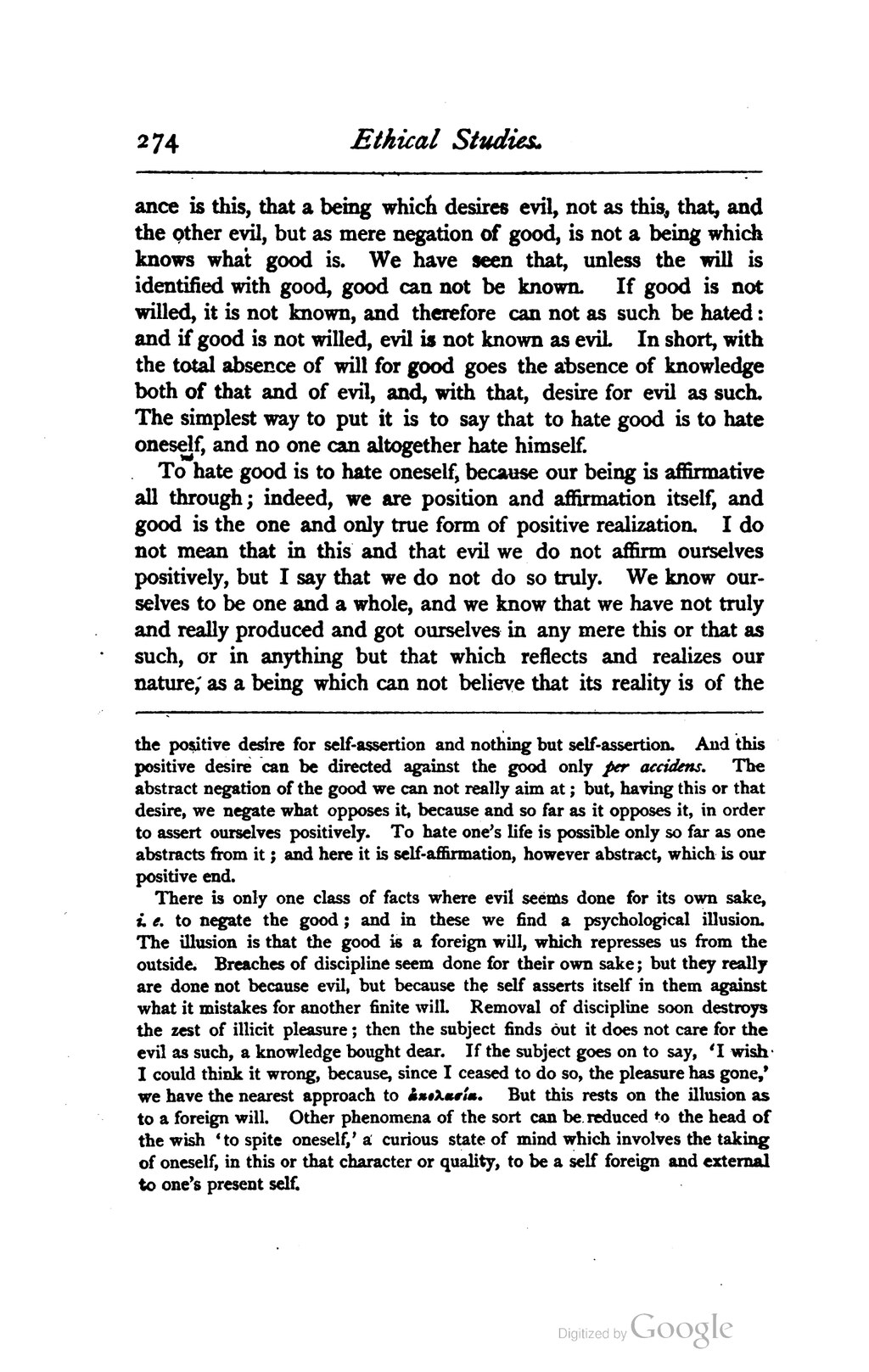ance is this, that a being which desires evil, not as this, that, and the other evil, but as mere negation of good, is not a being which knows what good is. We have seen that, unless the will is identified with good, good can not be known. If good is not willed, it is not known, and therefore can not as such be hated: and if good is not willed, evil is not known as evil. In short, with the total absence of will for good goes the absence of knowledge both of that and of evil, and, with that, desire for evil as such. The simplest way to put it is to say that to hate good is to hate oneself, and no one can altogether hate himself.
To hate good is to hate oneself, because our being is affirmative all through; indeed, we are position and affirmation itself, and good is the one and only true form of positive realization. I do not mean that in this and that evil we do not affirm ourselves positively, but I say that we do not do so truly. We know ourselves to be one and a whole, and we know that we have not truly and really produced and got ourselves in any mere this or that as such, or in anything but that which reflects and realizes our nature, as a being which can not believe that its reality is of the

